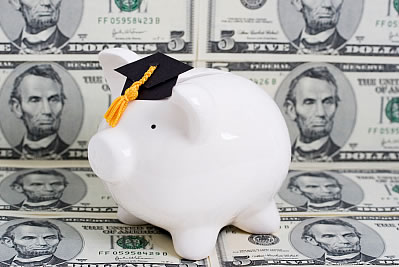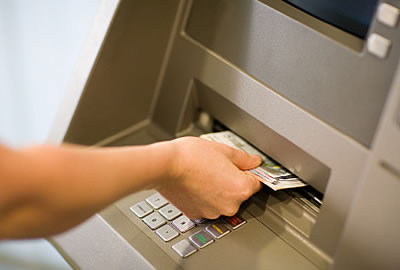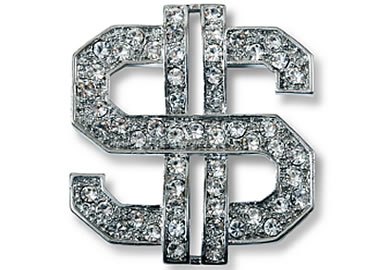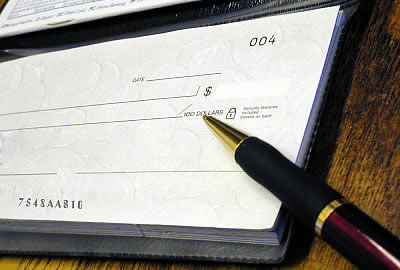Profit and prosper with the best of Kiplinger's advice on investing, taxes, retirement, personal finance and much more. Delivered daily. Enter your email in the box and click Sign Me Up.
You are now subscribed
Your newsletter sign-up was successful
Want to add more newsletters?

Delivered daily
Kiplinger Today
Profit and prosper with the best of Kiplinger's advice on investing, taxes, retirement, personal finance and much more delivered daily. Smart money moves start here.

Sent five days a week
Kiplinger A Step Ahead
Get practical help to make better financial decisions in your everyday life, from spending to savings on top deals.

Delivered daily
Kiplinger Closing Bell
Get today's biggest financial and investing headlines delivered to your inbox every day the U.S. stock market is open.

Sent twice a week
Kiplinger Adviser Intel
Financial pros across the country share best practices and fresh tactics to preserve and grow your wealth.

Delivered weekly
Kiplinger Tax Tips
Trim your federal and state tax bills with practical tax-planning and tax-cutting strategies.

Sent twice a week
Kiplinger Retirement Tips
Your twice-a-week guide to planning and enjoying a financially secure and richly rewarding retirement

Sent bimonthly.
Kiplinger Adviser Angle
Insights for advisers, wealth managers and other financial professionals.

Sent twice a week
Kiplinger Investing Weekly
Your twice-a-week roundup of promising stocks, funds, companies and industries you should consider, ones you should avoid, and why.

Sent weekly for six weeks
Kiplinger Invest for Retirement
Your step-by-step six-part series on how to invest for retirement, from devising a successful strategy to exactly which investments to choose.
Balancing credit cards, student loans, checking and savings accounts can be quite daunting. Make sure you aren't paying more than you should -- and that you're getting all the benefits you deserve -- with these 12 tips:

UNLOAD YOUR BURDEN
Carrying a $1,000 balance at 18% blows $180 every year on interest. That's money you could put to better use elsewhere. Get in the habit of paying off your balance in full each month.
If you've already racked up a large balance, do what you can to pay it off. This may sound obvious, but it is the best way to save money on those hefty interest charges. See Climb Out of Debt Faster for help.


CONSIDER A BALANCE TRANSFER
Shop for a new card with a lower interest rate.
Watch out for introductory offers, though. You don't want to get reeled in with the promise of a 5% rate only to find that it'll shoot up to 18% after three or six months -- unless you're confident you can pay off your entire balance within the introductory time frame.

SAY GOODBYE TO YOUR ANNUAL FEE
Your low-rate card may not be the deal you think it is if you're paying an annual fee.
For example, if you pay $40 each month toward a $1,000 balance on a card with a 12% interest rate and a $50 annual fee, that's equivalent to a no-fee card with an 18.4% interest rate. Use our calculator to find out whether a low rate is worth the annual fee.

REAP SOME REWARDS
You have to buy groceries and gas anyway, so why not use those purchases to get a little more green in your wallet? Sign up for a rewards credit card and get free money, gift certificates, airline miles or other perks.
If you spend $600 a month on groceries and gas, for example, on a card paying 2% cash back, you'd save almost $150 per year.
(Of course, it's only free if you pay the balance in full each month without incurring interest charges.)

LOWER YOUR STUDENT LOAN RATE
If you haven't yet consolidated your student loans, you can shave between one and three percentage points off your interest rate -- saving hundreds of dollars -- by going with a lender that offers a discount when you make on-time payments or automatic payments from your bank account.
You can compare deals through SimpleTuition.com.

CUT A DEAL ON STUDENT DEBT
If you're in over your head, ask your lender if you qualify for a graduated payment schedule (your payments start out small and increase as, presumably, your income increases). Or ask fo an extended payment period, such as 15 or 20 years.
See How to Pay Off Student Loans for more tips.

USE FREE ATMS
A buck or two here and there may not seem like a big deal. But if you're frequenting ATMs outside your bank's network, the surcharges can add up quickly. Get money from an ATM that belongs to a surcharge-free network.
Allpoint has about 200 participating institutions and 32,000 ATMs. Money Pass has 600 members and 8,000 ATMs.

GIVE YOUR CREDIT A CHECKUP
Making sure your credit is in tip-top shape can save you hundreds or thousands of dollars in the long run.
You're entitled by law to one free credit report once a year from each of the three main credit bureaus. Go to www.annualcreditreport.com to see what lenders can see about your credit history.
Learn more about why your credit report matters.


KEEP TABS ON YOUR BALANCE
At $20 to $30 a pop, overdraft fees and bounced checks can put a damper on your savings efforts. So it literally pays to keep tabs on your spending.
If you use a debit card for convenience over your checkbook, jot down all your debit transactions on your checkbook register to make sure you know how much money is in your bank account at all times.

EVALUATE YOUR SPENDING
Looking for help keeping tabs on your budget? Track your spending patterns through the free service at Wesabe.com. You enter your accounts to organize your spending into different categories on one convenient site.
Wesabe will also help you pinpoint areas where you could improve and lets you get feedback from other Wesabe users, all while protecting your passwords, identity and other sensitive information.

MORE WAYS TO SAVE MONEY
Save Money on Investing
Save Money on Food
Save Money on Transportation
Save Money on Travel
Save Money on Utilities
Save Money on Phone, Internet and TV
Save Money on Entertainment
Click here to print, email or comment on this slide show.
Profit and prosper with the best of Kiplinger's advice on investing, taxes, retirement, personal finance and much more. Delivered daily. Enter your email in the box and click Sign Me Up.
-
 5 Vince Lombardi Quotes Retirees Should Live By
5 Vince Lombardi Quotes Retirees Should Live ByThe iconic football coach's philosophy can help retirees win at the game of life.
-
 The $200,000 Olympic 'Pension' is a Retirement Game-Changer for Team USA
The $200,000 Olympic 'Pension' is a Retirement Game-Changer for Team USAThe donation by financier Ross Stevens is meant to be a "retirement program" for Team USA Olympic and Paralympic athletes.
-
 10 Cheapest Places to Live in Colorado
10 Cheapest Places to Live in ColoradoProperty Tax Looking for a cozy cabin near the slopes? These Colorado counties combine reasonable house prices with the state's lowest property tax bills.
-
 What to Do With Your Tax Refund: 6 Ways to Bring Growth
What to Do With Your Tax Refund: 6 Ways to Bring GrowthUse your 2024 tax refund to boost short-term or long-term financial goals by putting it in one of these six places.
-
 What Does Medicare Not Cover? Eight Things You Should Know
What Does Medicare Not Cover? Eight Things You Should KnowMedicare Part A and Part B leave gaps in your healthcare coverage. But Medicare Advantage has problems, too.
-
 15 Reasons You'll Regret an RV in Retirement
15 Reasons You'll Regret an RV in RetirementMaking Your Money Last Here's why you might regret an RV in retirement. RV-savvy retirees talk about the downsides of spending retirement in a motorhome, travel trailer, fifth wheel, or other recreational vehicle.
-
 The Six Best Places to Retire in New England
The Six Best Places to Retire in New Englandplaces to live Thinking about a move to New England for retirement? Here are the best places to land for quality of life, affordability and other criteria.
-
 The 10 Cheapest Countries to Visit
The 10 Cheapest Countries to VisitWe find the 10 cheapest countries to visit around the world. Forget inflation and set your sights on your next vacation.
-
 15 Ways to Prepare Your Home for Winter
15 Ways to Prepare Your Home for Winterhome There are many ways to prepare your home for winter, which will help keep you safe and warm and save on housing and utility costs.
-
 Six Steps to Get Lower Car Insurance Rates
Six Steps to Get Lower Car Insurance Ratesinsurance Shopping around for auto insurance may not be your idea of fun, but comparing prices for a new policy every few years — or even more often — can pay off big.
-
 How to Increase Credit Scores — Fast
How to Increase Credit Scores — FastHow to increase credit scores quickly, starting with paying down your credit card debt.
